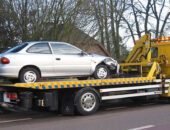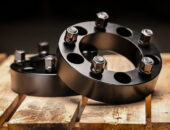Whether you’re a first-time car buyer or a seasoned vehicle enthusiast, understanding the market is key to making a savvy purchase. By familiarizing yourself with various aspects such as make, model, condition, and ownership history, you can ensure a car that will serve you well for years to come.
Crucially, keeping an eye on depreciation rates and resale value is paramount to ensure you get the most bang for your buck. However, if you’re searching for quality, affordable options, you don’t have to look too far. There is a thriving market of cars for sale in Fresno that boasts an impressive selection of well-maintained, value-for-money vehicles ready to hit the road with their next proud owner.
Understanding Car Depreciation

Source: montway.com
Depreciation, in simple terms, is the rate at which a car loses its value over time. On average, new cars can lose up to 20% of their value in the first year alone. Several factors influence the depreciation rate. The make and model of a car play a huge role in how fast it depreciates – luxury cars tend to hold their value better than economy cars. The condition of a car is another significant factor; a well-maintained vehicle depreciates at a slower pace compared to a poorly kept one.
The age of a car is directly proportional to depreciation – older cars depreciate faster. The number of miles on the odometer, or mileage, can also affect depreciation – higher mileage leads to faster depreciation. Ownership history is crucial, too; a car with a single previous owner usually retains more value than one with multiple owners.
Impact of Depreciation on New Cars vs. Used Cars
Depreciation behaves differently when it comes to new and used cars. New cars suffer a rapid depreciation in the initial years, known as the “depreciation cliff.” On the other hand, used cars have typically already experienced this sharp decline and thus depreciate at a slower, more steady rate. This is one of the main reasons used cars are seen as better value for money than their brand-new counterparts.
How to Limit Car Depreciation

Source: pexels.com
Limiting the depreciation of a car involves several key strategies. Keeping your mileage low can greatly slow depreciation, as cars with higher mileage are seen as more worn down. Proper car storage is also essential – keeping your car garaged helps maintain its condition and slow depreciation.
Regular maintenance not only extends the lifespan of your car but also helps it retain value. Lastly, choosing a popular make and model can mitigate depreciation, as these cars are in high demand and hold their value well over time.
Understanding Resale Value
Resale value is the amount a car is expected to be worth at the time of its sale. Factors affecting resale value are essentially the same as those affecting depreciation. Understanding resale value when buying a used car is vital, as it predicts the car’s future worth and, ultimately, the cost of ownership.
How to Maintain High-Resale Value

Source: pexels.com
The same principles apply to maintain a high resale value for limiting depreciation. Keeping a detailed record of all maintenance and repairs is crucial to increase the resale value of your vehicle. This demonstrates to potential buyers that you have maintained the car properly.
Make sure to maintain accurate records to maximize the value of your vehicle. A comprehensive service history can add significant value when it comes time to sell your car.
Conclusion
To wrap things up, understanding depreciation and resale value is pivotal when considering used cars for sale. By considering these factors, you can make a more informed buying decision and ensure that your investment holds its value for as long as possible.



